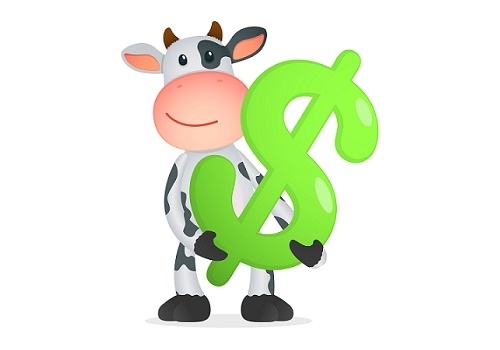
By David Hargreaves
Economists are looking on reasonably favourably after the latest GlobalDairyTrade auction overnight, in which prices showed good improvement, auguring well for Fonterra's milk price for farmers forecast of $6.40 - and possibly even a bit better.
Westpac economists have tweaked their prediction of the milk price up from $6.20 per kilogramme of milk solids to $6.50 after the latest auction results.
Senior economist Anne Boniface noted that fears of tighter international supplies, particularly for whole milk powder, had helped dairy prices squeeze higher in the first few GlobalDairyTrade auctions of 2018.
"Overall prices rose 5.9% in last night’s auction, including a 7.6% gain for whole milk powder.
"Higher auction prices have led us to upgrade this season’s milk price forecast to $6.50/kg, slightly ahead of Fonterra’s estimate.
"We continue to caution however, against extrapolating recent trends too far into 2018.
"Our view remains that growth amongst New Zealand’s key trading partners is likely to slow this year – led by China. Chinese policymakers are poised to follow through with moves to rebalance their economy, reduce the risks generated by rapid credit expansion, and put the economy on a more sustainable growth path.
"And while the consumer sector isn’t the focus for Chinese policymakers, they are unlikely to escape a period of slower growth completely unscathed. With China such an important market for almost all New Zealand commodity exporters, this could see New Zealand’s prices soften as 2018 progresses."
The ASB economists, long-time 'bulls' about the milk price, have maintained their forecast at $6.50.
Senior rural economist Nathan Penny said the lift in dairy prices lifted overnight, had been supported by the recent stall in NZ dairy production.
"The result follows a recent stalling in NZ dairy production. December production, for example, was 4.6% behind December 2016.
"However, we expect that some of this price strength will be temporary. In particular, weather to date in 2018 has improved, with most regions receiving substantial rain. As such, production is likely to improve later in the season.
"Also, in our view Fonterra’s -3% production growth forecast is overly pessimistic. All up, the total effect on this season’s milk price is still higher than anticipated earlier.
"As a result, we are now more confident in our 2017/18 milk price forecast of $6.50/kg than we were as at the end of 2017," Penny said.
In terms of production, Penny is predicting that the improved weather will lead to growth of 1% compared with last season.
"That said, there will be wide variations across the country given the varying extent of storms, drought and rainfall."
All of this is some good news for Fonterra as it mulls what to do about its hugely problematic 18.8% stake in Chinese company Beingmate Baby and Child Food Co, which is now on paper worth less than a third of what Fonterra paid for it in 2015.
The most recent share price for Beingmate was RMB 4.58, compared with the RMB 18 that Fonterra paid in what chief executive Theo Spierings said would be a "game changer".
None of the Fonterra executives have, by name, commented on the Beingmate situation, with Fonterra's recent statement on Beingmate's massive earnings downgrade having not quoted anybody.
Asked when Fonterra would be giving something more substantive on the Beingmate issue, the Fonterra corporate communications team said this week that this would not be happening till Fonterra releases its interim results in the second half of March.
See here for the full dairy payout history.
Dairy prices
Select chart tabs
1 Comments
It's worth making the obvious but perhaps too-little-recognised point that the GDT and other ticker-style price variances don't affect the actual producers at all during the term of their supply contract. Fonterra, Synlait, Oceania, Tatua, Westland and the other buyers, all act as price smoothing mechanisms for individual farmers. They absorb, manage and ride out the immediate cycles, while their contracts with farmers remain fixed.
So there should be no need to ruminate (sorry...) over every bounce or sag in the tickers. It's the difference between direct investment in the commodity, and a managed fund which happens to include some of that commodity. The former's immediate wealth is tied to the ticker. The latter's is not.
Everything depends on the managers, in that latter case. Which, as DH's article notes, is the real question for F's shareholders......

We welcome your comments below. If you are not already registered, please register to comment
Remember we welcome robust, respectful and insightful debate. We don't welcome abusive or defamatory comments and will de-register those repeatedly making such comments. Our current comment policy is here.